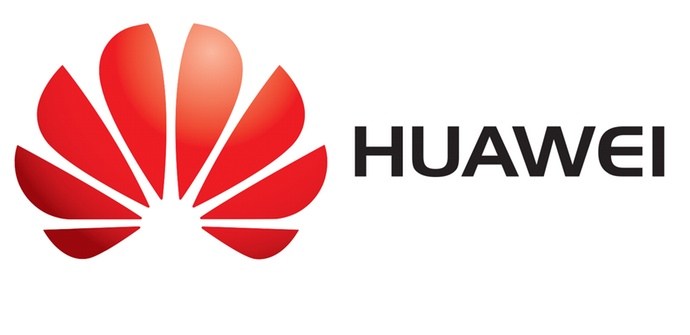News
Nigeria, Tanzania Take First Prize in Huawei’s Sub-Saharan Africa ICT Competition

Students from Nigeria and Tanzania were the overall joint winners of this year’s sub-Saharan regional finals of Huawei’s global ICT Competition.
Together with second prize winners, Angola and Kenya, the four teams will travel to China for the finals, which will see 40 teams from around the world compete for the championship title.
The competition covered the latest ICT technologies, such as cloud computing, artificial intelligence, mobile networks and big data. Almost 30 000 students from over 100 universities in Nigeria, Ghana, Kenya, Uganda, Tanzania, Angola, South Africa, Mozambique, Zambia, Botswana and Mauritius participated.
At the finals, held this weekend in Johannesburg, it came down to 42 students in 14 teams. They sat for theory and practical examinations at the finals at Huawei’s regional headquarters, in Woodmead, Johannesburg.
Speaking at the final award-giving presentation, Xue Man, Vice-President of Huawei, said: “Huawei understands the value of a good talent ecosystem, which is the foundation for a smart future. This ICT Competition is part of our innovative initiatives to support that and promote ICT skills.
“We believe that this event will inspire more students’ interest in ICT learning in Africa; it provides them with a world-class stage to showcase themselves and consolidate the vital ICT needed for Africa’s development”
Alfred Cheruiyot, a representative from Kenya Ministry of Education, praised Huawei’s actions to raise skills and partner with national governments and local tertiary institutions to strengthen the skills pool in ICT.
“We are fully aware how important this is for our students to get good jobs and to become successful entrepreneurs. We are fully aware that this will drive our economy forward for many years to come if we can get it right,” Cheruiyot told the gathering.
Tanzania ICT student Emanuel Chaula was overjoyed that his team emerged as one of the two winning countries. He said: “We worked hard as a team because we wanted to seize the opportunity to get to travel to China to compete in the global finals.
“We really want to show Africa and the world that Tanzania is an up-and-coming ICT player, and we want to be a part of that growth in our country. We will study and practise for the finals in China as we are going there to win. ”
The Huawei ICT Competition is a global ICT talent competition exchange event, which is aimed at the Huawei Authorized Information and Network Technology College (Huawei ICT Academy) and related universities.
Since the first Huawei ICT Competition, held in 2015, the number of participants in the competition has grown exponentially and has become one of the largest ICT events in the world. The 2018/19 event has attracted more than 1 000 universities in more than 50 countries around the world, under the slogan: “Connection, Glory and Future”. The total number of students participating globally was 80 000 students, including 28 000 students from southern Africa.
During the competition, through the road show, training, lectures and other special activities, the latest technology, information and industry trends are passed on to students and practitioners. The focus is to bridge the gap between theoretical study and practical experience, to get students more ready to join the job market and increase their competitiveness.
The winners of the sub-Saharan Africa region will go to China in May to participate in the global finals in Shenzhen, China. There they will compete with the 22 winners from other parts of the world for the global finals.
News
Yahoo Mail Halts Free Storage Service, Caps at 20GB

Yahoo Mail has announced a major shift in its storage policy, slashing the free email storage cap to 20GB and rolling out a new subscription model starting at $1.99 per month for 100GB.

The change, which takes effect immediately, marks a significant downgrade for many long-time users who have grown accustomed to Yahoo’s previously generous storage offering.
In a notice sent to users on Tuesday, the company urged account holders to review their current storage usage and consider paid upgrade options to avoid disruptions.
“Once you reach the 20GB limit, you will no longer be able to send or receive emails unless you either delete existing messages or upgrade your account,” the notice warned.
While access to inboxes will remain intact for now, users will be forced to clean up their accounts or move to a paid tier to maintain full functionality.
Yahoo has unveiled two new storage plans which are 100GB for $1.99/month and 1TB for $9.99/month.
For those seeking a more premium experience, Yahoo is also offering Yahoo Mail Plus, which includes 200GB of storage, an ad-free interface, and additional features. However, users opting for the 100GB and 1TB tiers will still be served ads, a move likely to frustrate those paying for expanded capacity.
To ease the transition, Yahoo is rolling out new tools to help users manage their inboxes more efficiently. These include real-time storage tracking, a usage dashboard, sorting options for large emails, and an attachment manager to help clear out space-consuming files.
Despite the enhancements, the abrupt downgrade has sparked concerns among users, particularly those with email archives spanning more than a decade. Critics argue the change could pressure many into paying for what was previously free, without a proportionate upgrade in value, especially considering ads remain in place for all but the premium Plus tier.
Yahoo’s new model brings it closer to competitors like Gmail, which offers 15GB of free storage shared across Gmail, Google Drive, and Google Photos. Google’s paid plans also begin at $1.99/month for 100GB, but offer additional benefits such as photo backups and expanded cloud services. Gmail also provides a cleaner experience, with minimal ads even on its free plan.
Yahoo Mail’s new 20GB limit applies exclusively to email storage, a slight advantage for users who don’t rely heavily on broader cloud services. But the real test will be how users respond to the newly imposed constraints and whether the value proposition is strong enough to convert them into paying subscribers.
News
CAC to Delist 100,000 Dormant Firms After 90-Day Compliance Window

Corporate Affairs Commission (CAC) in Nigeria has announced a significant move to strike off approximately 100,000 dormant companies from its register due to their failure to file annual returns for over a decade.

This initiative, aimed at cleaning up the nation’s business registry, was confirmed in a statement released by the CAC on Tuesday, 29 July 2025. The commission has granted these companies a 90-day grace period to submit all outstanding annual returns or face permanent removal from the database.
The CAC’s action is grounded in Section 692 (3) (4) of the Companies and Allied Matters Act (CAMA) No. 3 of 2020, which empowers the commission to delist defunct or inactive companies.
The statement, published on the CAC’s official website, urges affected companies to file their overdue returns and notify the commission via email at activation@cac.gov.ng to avoid being struck off.
The commission has also made it clear that it is illegal to conduct business under the name of a delisted company, as such entities are considered dissolved.
Registrar General Garba Abubakar previously noted that nearly 90% of registered companies in Nigeria are dormant, highlighting the scale of non-compliance. This crackdown is part of a broader effort to enhance transparency and ensure a robust business environment in Nigeria.
The CAC has advised stakeholders to verify the status of companies before engaging in transactions, warning that dealing with a dissolved company could lead to legal repercussions. Only a Federal High Court order can reinstate a delisted company, underscoring the gravity of the process.
The list of affected companies, numbering around 100,000, has been published on the CAC’s website, allowing businesses to check their status. Companies that have already filed complete annual returns but find themselves listed have been instructed to provide evidence of compliance by emailing compliance@cac.gov.ng within the 90-day window.
This initiative follows earlier warnings from the CAC, including a December 2024 announcement to delist 91,843 companies and a subsequent removal of 80,429 companies in November 2024, which included notable names like Innoson “Vinod” International Limited and Jolly Food Industries Ltd.
The 90-day grace period, starting from 29 July 2025, offers a final opportunity for these companies to regularise their status.
The CAC’s decisive action signals a commitment to fostering accountability and compliance within Nigeria’s corporate landscape, raising important questions about the operational challenges facing thousands of registered businesses.
As the deadline approaches, the commission’s efforts are expected to reshape the country’s business ecosystem, ensuring only active and compliant entities remain on the register.
News
InfraCredit, AMDA Sign Partnership to Unlock Local Financing for Africa’s Mini-grid Sector

InfraCredit, a specialised infrastructure credit guarantee institution, has entered into a strategic partnership with the Africa Minigrid Developers Association (AMDA) to boost access to long-term local currency financing for mini-grid and distributed renewable energy (DRE) projects across Africa.

The agreement aims to strengthen market development and address long-standing financing barriers in the mini-grid sector, especially in Nigeria and other underserved African markets.
The collaboration is aligned with InfraCredit’s Clean Energy Funding Programme (CEFP), which offers credit enhancement, due diligence support, and technical assistance to renewable energy developers.
“With an estimated 86 million Nigerians, alongside hundreds of millions across Africa—still living without electricity, bridging this energy access gap demands a pipeline of investment-ready, well-prepared projects that can unlock scalable capital and accelerate financial close,” said Chinua Azubike, CEO of InfraCredit.
“This partnership creates a practical pathway to scale the impact of our Clean Energy Funding Programme by equipping more developers to structure commercially viable mini-grid and DRE projects that qualify for long-term local currency finance,” Azubike added.
Through the agreement, both InfraCredit and AMDA will work together to facilitate technical assistance, share toolkits, and deploy credit modelling frameworks, including InfraCredit’s Distributed Renewable Energy Lending Toolkit (DRELT) and DRE Credit Rating Model. These tools aim to enhance the bankability of projects and improve developers’ ability to secure patient capital in local currency.
AMDA, which represents mini-grid developers operating in over 20 African countries, brings deep sector expertise and a strong network of DRE operators to the partnership.
According to Lamide Niyi-Afuye, CEO of AMDA, the collaboration addresses one of the most persistent challenges in the sector.
“We are pleased to collaborate with InfraCredit to address one of the most persistent barriers in the minigrid sector, access to affordable, long-term local currency finance,” said Niyi-Afuye.
“By aligning AMDA’s advocacy and technical support efforts with InfraCredit’s proven models and tools, we aim to accelerate the deployment of resilient, decentralised energy solutions that deliver tangible socioeconomic benefits in Africa. We view this partnership as a blueprint that will be used beyond borders, paving the way for broader regional impact,” he added.
The partnership will also support the development of transaction-ready pipelines, capacity-building initiatives, and investor-developer forums aimed at improving market transparency and accelerating the roll-out of commercially viable mini-grids.
By facilitating access to domestic blended finance and strengthening project preparation, the partnership hopes to unlock greater private sector participation, mobilise local capital, and expand clean energy access across unserved and underserved communities in Africa.

 E-Business2 days ago
E-Business2 days agoHuawei Unveils AI Computing System to Challenge Nvidia’s Flagship Product

 E-Financial2 days ago
E-Financial2 days agoUnion Bank Rewards Customers with ₦5 Million Each in Save and Win Palli Promo Season 4 Grand Finale

 E-Financial2 days ago
E-Financial2 days agoEdun, Finance Minister Inaugurates NDIC New Management

 News2 days ago
News2 days agoLawyers Drags NLS to Court for Alleged Election Fraud, Data Violation

 Telecom1 day ago
Telecom1 day agoGlo Boosts Network Capacity for Enhanced Customer Experience

 General News2 days ago
General News2 days agoNew Tax Law Empowers NRS to Fine Offenders up to N10m

 News1 day ago
News1 day agoTranscorp Power Posts Strong Half-Year Profit, Declares ₦11.25Bn Dividend

 Broadcasting2 days ago
Broadcasting2 days agoCourt Upholds AVRS Legal Rights to Licence Audiovisual Works in Hotels

























